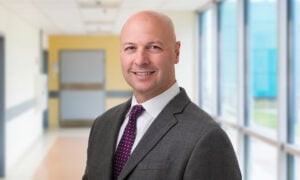Physician Introduction on Heartburn and Reflux
Presented by John Pandolfino, MD

Presentation Overview
Gastroesophageal Reflux Disease (GERD) is a condition that develops when the reflux of the stomach content causes troublesome symptoms and/or complications. GERD can be associated with various symptoms, but heartburn and regurgitation are usually the most common.
In this presentation, Dr. John Pandolfino discusses how healthcare providers determine the best treatment plan for patients with burning in the chest/heartburn and reflux. He also talks about the risk-benefit ratio for using proton pump inhibitors (PPI), why patients might not get better with the use of PPIs, and other lifestyle modifications that may help reduce symptoms associated with GERD.
About Dr. Pandolfino
Dr. Pandolfino is the Hans Popper Professor of Medicine and Chief of Gastroenterology and Hepatology at the Feinberg School of Medicine at Northwestern University. His career has focused primarily on studying the biomechanics of bolus transport and gastrointestinal motility as it pertains to gastroesophageal reflux and swallowing disorders. He currently is funded by the NIH to study GERD and Dysphagia pathogenesis and also receives funding from industry focused on the development of new technologies to investigate and treat gastrointestinal disorders. He also maintains a strong clinical practice and in the Esophageal Center at Northwestern which serves as one of the nation’s top referral centers for complicated esophageal diseases. He is active in multiple professional organizations and has a strong commitment to the editorial process as a member of the editorial board of multiple high-level Gastroenterology and Hepatology journals.













